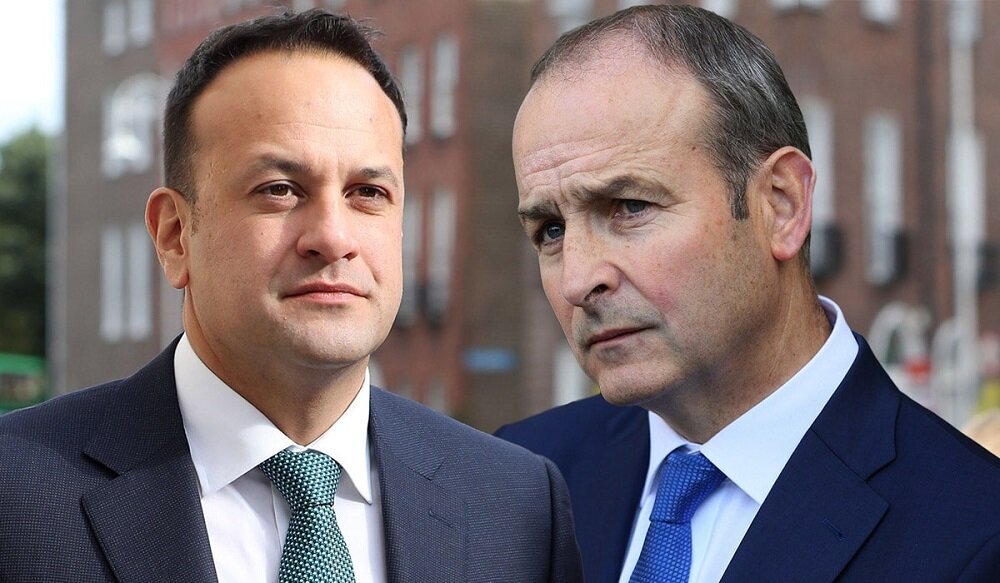Budget 2020 is less than a day old and it’s already fading from memory.
For a politics-weary public, a bureaucrat’s budget has its attractions. At times of uncertainty, change is the last thing most people want. The Brexit behemoth has sucked up most of the political oxygen.
But here’s the rub. The Budget remains one of the few times ‘normal’ people turn their attention to politics. Over the last 24 hours, Budget-themed news notifications have been pushed to millions of phones. Today, people will click through ‘Budget calculators’ to see what it means for them, if it means anything at all. They’ll give the news bulletins a few extra minutes. Businesses will be keen to see what effect it has on early trading.
The Budget matters, even if it’s just for a moment. Given we’re now only months away from a general election, our political masters and their strategists will be keenly attuned to this.
The next election will be like no other of recent times. It will be the first in over 30 years where the two contenders for Taoiseach have a genuine shot at victory. The Budget 2020 platform presents both contenders, Leo Varadkar and Micheál Martin, with a prime opportunity to connect with the public.
Leo vs Micheál
Budget 2020 gave glimpses of Fine Gael and Fianna Fáil’s respective campaign messages, albeit in broad strokes.
For Leo and Fine Gael, Brexit is the dance floor they want us to waltz on. With rapidly unfolding events in London, and deep issues like identity and trade in the spotlight, Leo the Leader is at his most comfortable in this fluid, big picture Brexit environment. ‘Preparing for Brexit’ and fighting for Irish interests plays well.
For the incumbent, leveraging the advantages that come with high office, not least regularly communicating on the international stage, can be positive for ratings.
The €1.2 billion Brexit contingency fund announced in the Budget is the type of financial firepower Fine Gael can deploy to underline its Brexit credentials. Big employment sectors like agriculture, enterprise, and tourism reach every part of the country.
How the fund will ultimately be used will be telling, as will the involvement of Government members in its rollout.

The 2020 general election will break Fine Gael and Fianna Fáil’s ‘non-aggression pact’.
Following a period in which its reputation for financial prudence took a considerable hit because of issues like the Children’s Hospital, Fine Gael is clearly seeking to reboot.
Phrases like “responsible management of the public finances” or “we have eliminated the deficit” are intentional. At a time of great uncertainty, the pollsters know that slow and steady governance can resonate.
In tandem, Fine Gael appears keen to remind the public of just who it believes was responsible for the crash. It remains to be seen, given its own issues, whether this tone will catch with an increasingly discerning public.
For Fianna Fáil, the slow recovery from its 2011 pummelling is evidenced by the results of the 2019, 2016 and 2014 elections. It has slowly crept ahead in the polls, and Micheál Martin consistently scores highest in national leader ratings. A return to power is a real possibility.
Fianna Fáil’s recovery has in large part been due to voters gravitating to its message on investing in public services. Budget 2020 is a further signal that it is doubling down on this approach.
Fianna Fáil spokespeople have been busy selling what their support of the minority government has helped to secure: more gardai, more teachers, more healthcare professionals, and more money for social and affordable housing. Expect this to continue.
Issues on ice
As we close the book on Budget 2020, let’s consider one last line item that indicates nervous messaging: climate change.
The green surge in the recent local and European elections has given the two traditional parties pause for thought. The response in Budget 2020 was to increase carbon tax, introduce new taxes on imported petrol and diesel vehicles, and announce a dedicated Midlands fund for a region grappling with the fallout of a high-carbon heritage.
Such measures will play well with the ‘greening’ public and enable Leo (and to a lesser extent, Micheál) to point to tangible action.
But politicians from the two main parties remain nervous, and those nerves are perhaps best demonstrated by the delay in the full application of the carbon tax increase. As a recent Sunday Times opinion poll showed, over 70% of those questioned opposed the doubling of a tax which increases prices on everyday fuels.
It is clear that despite the apparent ‘green wave’, politicians are wobbling. Like the abortion referendum, many are waiting to see which way the wind is blowing. Such wobbling does not lend to compelling communication. Worse still, it causes confusion, which often runs the risk of both annoying the base and disappointing the prospect.
On climate change, there remains a gap between theory and practice. Until politicians and advocates close it, the changes we all agree are needed will be slow.

About the author
Founder and Managing Director of 360, Dan’s career spans business, politics and professional representation. He has overseen the agency’s rapid growth, developing a premier client portfolio and a talented team of professionals.
